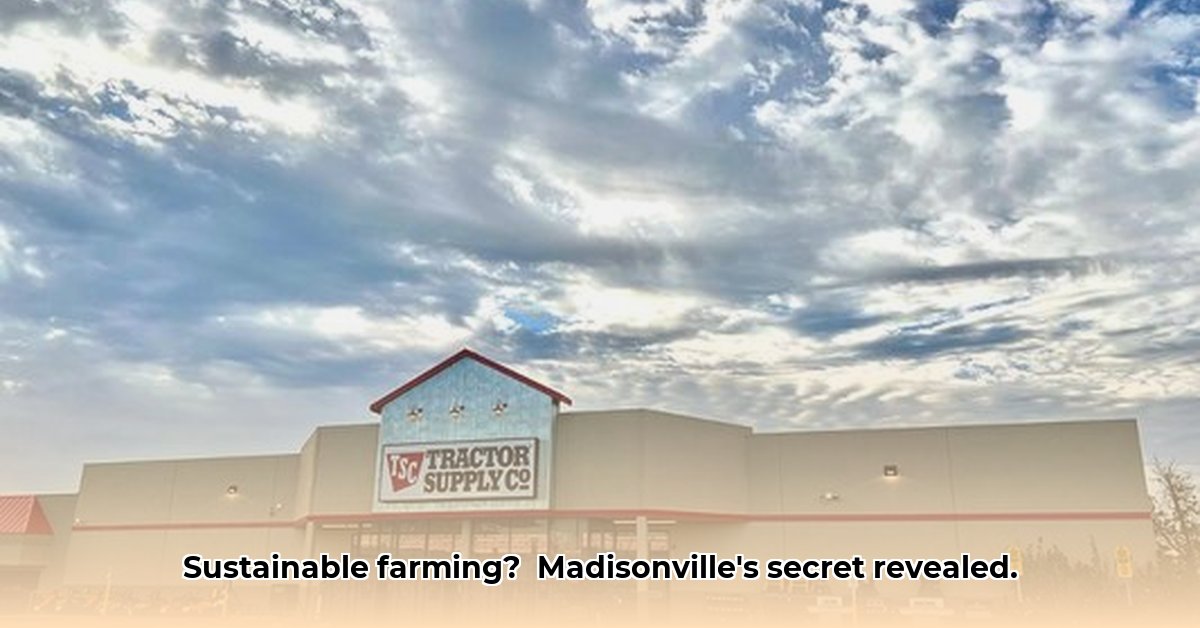
Can Tractor Supply Help Texas Farmers Go Green?
Tractor Supply Company (TSC) stores, like the one in Madisonville, Texas, offer a wide range of agricultural supplies. But does the easy access to these products translate to readily available and actively promoted sustainable farming practices? This informational article examines TSC's role in supporting sustainable agriculture in Texas, offering actionable steps for farmers to integrate eco-friendly methods into their operations. We'll explore the challenges and opportunities, considering the perspectives of farmers, TSC, the Texas government, and environmental groups. How significant is TSC's contribution, and what more can be done? For water storage solutions, consider exploring water storage options.
Access to Sustainable Supplies: A Mixed Bag
TSC stocks numerous products relevant to sustainable agriculture, including organic seeds, natural pest control options, and certain irrigation equipment. However, the mere presence of these items doesn't guarantee their widespread adoption by farmers. The reality is more nuanced. Dr. Anya Sharma, Agricultural Economist at Texas A&M University, notes, "Cost remains a significant barrier. Organic options often command higher prices, presenting a challenge for farmers operating on tight margins." This highlights the need for supportive measures beyond product availability.
The Financial Factor: A Major Hurdle
The question of affordability is paramount. Sustainable farming practices frequently require upfront investments in new technologies or materials. This reality significantly influences farmer purchasing decisions. How many farmers in the Madisonville area, for example, can afford the premium for organic seeds when conventional options are readily available at a lower cost? This financial constraint underscores the necessity of government incentives and educational programs to facilitate wider adoption of eco-friendly practices. As stated by Mr. David Miller, a fifth-generation farmer near Madisonville, "Until the cost equation changes, making the switch will remain difficult for many of us."
Beyond Madisonville: A Statewide Perspective
While focusing on the Madisonville TSC store provides a localized perspective, the bigger picture involves TSC’s statewide network. Their extensive reach in Texas significantly influences access to farming supplies, but a crucial question remains: Does TSC actively promote sustainable agriculture beyond simply stocking relevant products? This question requires a deeper analysis of their marketing strategies and supply chain practices. Further research is essential to fully grasp TSC's overall influence on sustainable farming initiatives.
Collaborative Action: A Path Forward
A multifaceted approach is needed to effectively promote sustainable agriculture in Texas. This requires collaboration among multiple stakeholders:
Tractor Supply Co.: Analyze sales data to identify high-performing sustainable products. Develop targeted marketing campaigns emphasizing eco-friendly options and explore opportunities for a more sustainable supply chain.
Texas Farmers: Assess the additional costs associated with sustainable practices and actively seek out government subsidies and training programs. Consider collective bargaining to achieve economies of scale when purchasing sustainable inputs.
Texas Government: Implement more comprehensive financial incentives to offset the increased costs of sustainable agriculture. Invest in research and education initiatives to empower farmers with the knowledge and skills needed for sustainable farming.
Environmental Groups: Partner with TSC to promote sustainable product choices through joint educational initiatives and advocacy efforts. Conduct independent assessments of TSC's environmental footprint to better inform policy and public understanding.
Practical Steps for Sustainable Sourcing at TSC
How can Texas farmers actively incorporate sustainable practices utilizing TSC resources? Here are five actionable strategies:
Prioritize Local Sourcing: Opt for products sourced within Texas to reduce transport emissions and support local economies.
Minimize Packaging: Choose products with minimal or recyclable packaging to reduce waste.
Analyze Product Composition: Select products made with recycled or biodegradable materials.
Compare Products: Evaluate different options, prioritizing those with lower environmental impacts and higher recycled content.
Seek Certifications: Prioritize products with certifications like USDA Organic to ensure compliance with established sustainability standards.
Remember, TSC is just one element of a holistic approach to sustainable farming. Complement TSC purchases by supporting local farmers' markets and exploring alternative sustainable suppliers.
Limitations and Future Research
It's crucial to acknowledge the limitations of this analysis. Due to the limited publicly available data on TSC's specific sustainable initiatives, a comprehensive evaluation of their impact is currently challenging. Further investigation into their sourcing practices, marketing strategies, and supply chain transparency is needed to fully assess TSC's contribution to sustainable agriculture in Texas.